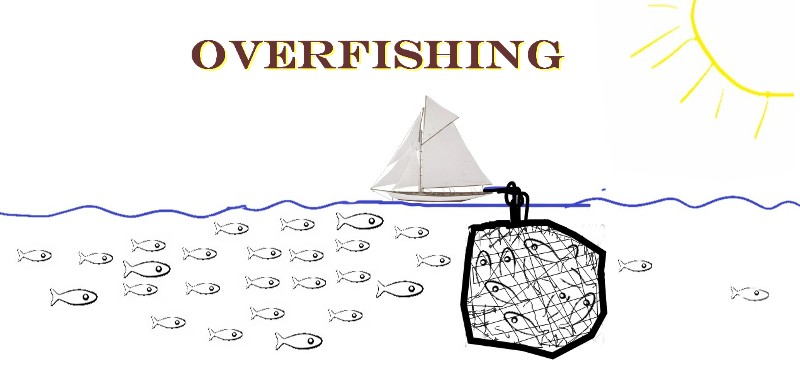Oceans, covering up 71% of the Earth, and containing many of the animals we use as a daily food source. In the past we have managed this source quite well until now, when the greedy fishing companies threaten to fish out almost all of the seafood in the ocean. If something is not done about this soon then we will lose most seafood by 2050. This means no sushi, salmon, tuna, etc. Luckily some organization are trying their best to make a difference.
Organizations such as Aquaculture Stewardship Council, Institute for Fisheries Resources, International Seafood Sustainability Foundation, Marine Fish Conservation Network, have attempted to raise awareness by regulating the amount and type of fish that we could consume, giving out pamphlets, and making documentaries. They have also tried social media, but without enough publicity or support they can not make a very big change. Another way that we have tried to conserve this food source is by farming seafood. This is not the most efficient idea as the fish come in lower quality, and the farms require much time and money to function properly. Another way this could be solved is rotating fishing grounds. For example we can use the west coast for half a year, then switch to the east coast, and repeat.
What if we decide to just stop fishing and let the oceans recover? First off large companies will do everything in their power to stop this, for obvious reasons. They will say things such as the ocean is so vast and fish replenish much faster than they are fishing them out. This is however completely false. As scientific data shows an exponential downfall in fish population. Another thing they could do is shift the blame to other countries, but that’s what we would expect other countries to do as well. Overall it is everyone’s fault, and not just one country. So, what if we got past this? Well, the prices of all seafood will sky rocket as there will be a very limited supply left. Also, the seafood companies and other businesses that rely heavily on seafood will slowly become obsolete or forced to change. As for the oceans, it will take varying amounts of time to recover, parts such as China, Norway, Vietnam, more will take a couple decades as they have been heavily fished. While other parts such as Mexico or Brazil will take little to no time to recover. Another problem that would arise is the countries that rely on the ocean as their primary food source would have become refugees and relocate to other countries, causing another chain of problems. Overall stopping fishing is not an option, but with better methods and careful conversation methods along with consumer awareness, we may be able to extend the time we can have seafood on our plates.
About the Author:
Elton Lee is an incoming sophomore in high school, and he would like to pursue a career in neurology.
